Buying food can be expensive and now that there’s an extra mouth to feed you really need to watch those pennies. So make sure you have a good look at our Best Start Foods and support and benefits for parents pages to see whether you might be due some extra financial help. With that in mind we’ve made sure all our ideas will help you cut costs without cutting the important stuff from your baby’s diet.
Money saving tips
Tip #1: Plan your budget and write a shopping list
Planning out your meals for the week and writing a shopping list can be a good way of saving money. It stops you buying things you don’t really want. Most supermarkets have a range of fruit and vegetables each week that they are promoting and selling at a reduced price. It’s also cheaper and good for the environment to buy fruits and veg which are locally produced and in season – and they usually taste better!
Tip #2: Try to use as many of the foods available on the Best Start foods list as possible - eggs and pulses (like beans, peas, and chickpeas)
They are a cheap way to get your baby eating great food. Make sure the eggs you use have the British Lion stamp. Pulses and beans are also on the list and are very nutritious. They're great to add to stews and soups if you're vegetarian and also make meat meals go further.
Tip #3: Try tins or frozen fruit and vegetables
The Best Start benefit enables you to buy fresh, frozen or tinned fruit and vegetables. Make sure that tinned fruits are in natural juices and the veg is in spring water. Buying frozen fruit and veg is cheaper than buying fresh. And you can select the amount you want to cook, so no waste!
It’s easy to make a healthy family meal from just tins - have you tried tuna fishcakes? Mash tinned potatoes and tuna together, then pan-fry to make fishcakes, and add a side of tinned green veg – delicious! Or try defrosting some blueberries and mixing with full-fat yoghurt for a tasty dessert.
Tip #4: Batch cooking and using the freezer
Try cooking meals to enjoy over the course of the week or batch cook and freeze the extra portions. Chilli and tomato pasta bakes are all good batch cooking meals. It might take 30 minutes one day to make, but only minutes to reheat in the microwave!
Pop leftovers in the freezer and defrost on a day when you haven’t got the time to make a meal from scratch.
Tip #5: Feeding the whole family
Making the same meal for the whole family isn’t just quicker and cheaper, it will also let your baby see you all eat together, which will help them to eat up too. Just make sure that your baby’s food doesn’t have any added salts or sugars.
Tip #6: Check the sell-by dates

Check the sell-by dates when you’re shopping to make sure food won’t be going out of date straightaway!
Tip #7: Don’t buy pre-packaged baby foods
They may look really easy to give to your baby, but they are very pricey compared to what you can make at home. They are also likely to have cheaper ingredients and be less tasty and nutritious than your homecooked foods.
Tip #8: Swap cereals for porridge
Porridge made with full-fat pasteurised cow’s milk and added fruit is a tasty breakfast for a baby. Own label oats are cheaper than branded ones and often contain less salt and sugar.
Tip #9: Get clever with yoghurt

If you have yoghurt that’s near its best before date, try making this delicious frozen yoghurt recipe.
- Line a small baking tray with cling film.
- Smooth the yoghurt over the cling film.
- Decorate with any fruit you have around the house (could be frozen fruit).
- Pop in the freezer.
- Remove from the tray and cling film.
- Cut into fun sized triangles.
- Pop in freezer bag and freeze.
- When main meals are being served to baby, pop a triangle out the freezer so it is a little defrosted (and easier to eat) for your baby’s pud. Yum!
You’ll find other recipes that don’t break the bank or need fancy cooking skills right here.
Tips from parents
"Be organised, do meal prep, persevere with textures and flavours, camera at the ready for the funny faces!"
"When all else fails, porridge."
 Activities & Play
Activities & Play Behaviour
Behaviour Childcare
Childcare Development & Growing Up
Development & Growing Up Family, Friends & Relationships
Family, Friends & Relationships Feeding Your Baby
Feeding Your Baby Food & Eating
Food & Eating Health & Safety
Health & Safety Mental Health & Wellbeing
Mental Health & Wellbeing Money & Work
Money & Work Online Behaviour & Safety
Online Behaviour & Safety Pregnancy & First Days
Pregnancy & First Days School & Education
School & Education Sleep
Sleep



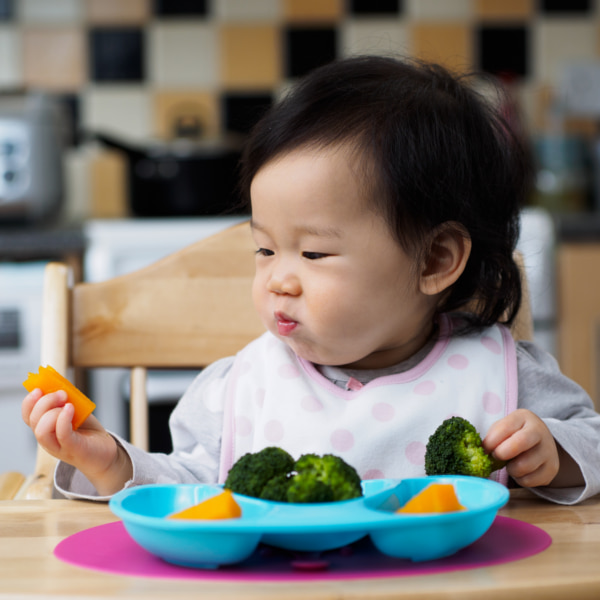





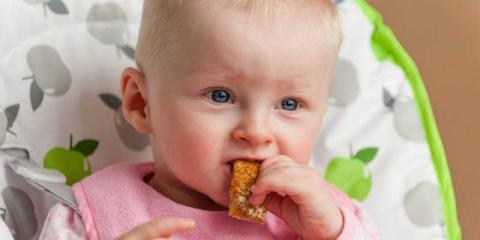
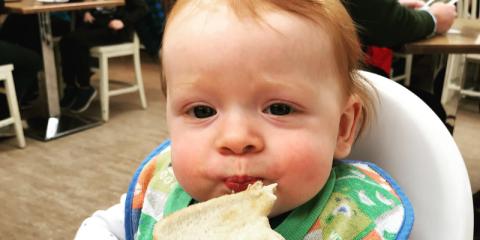

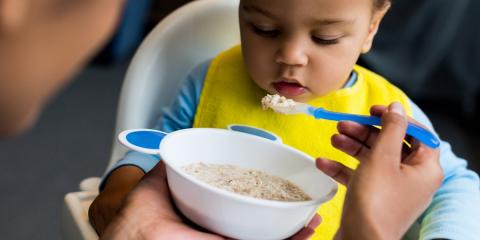
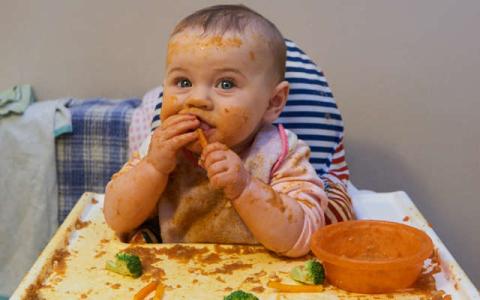


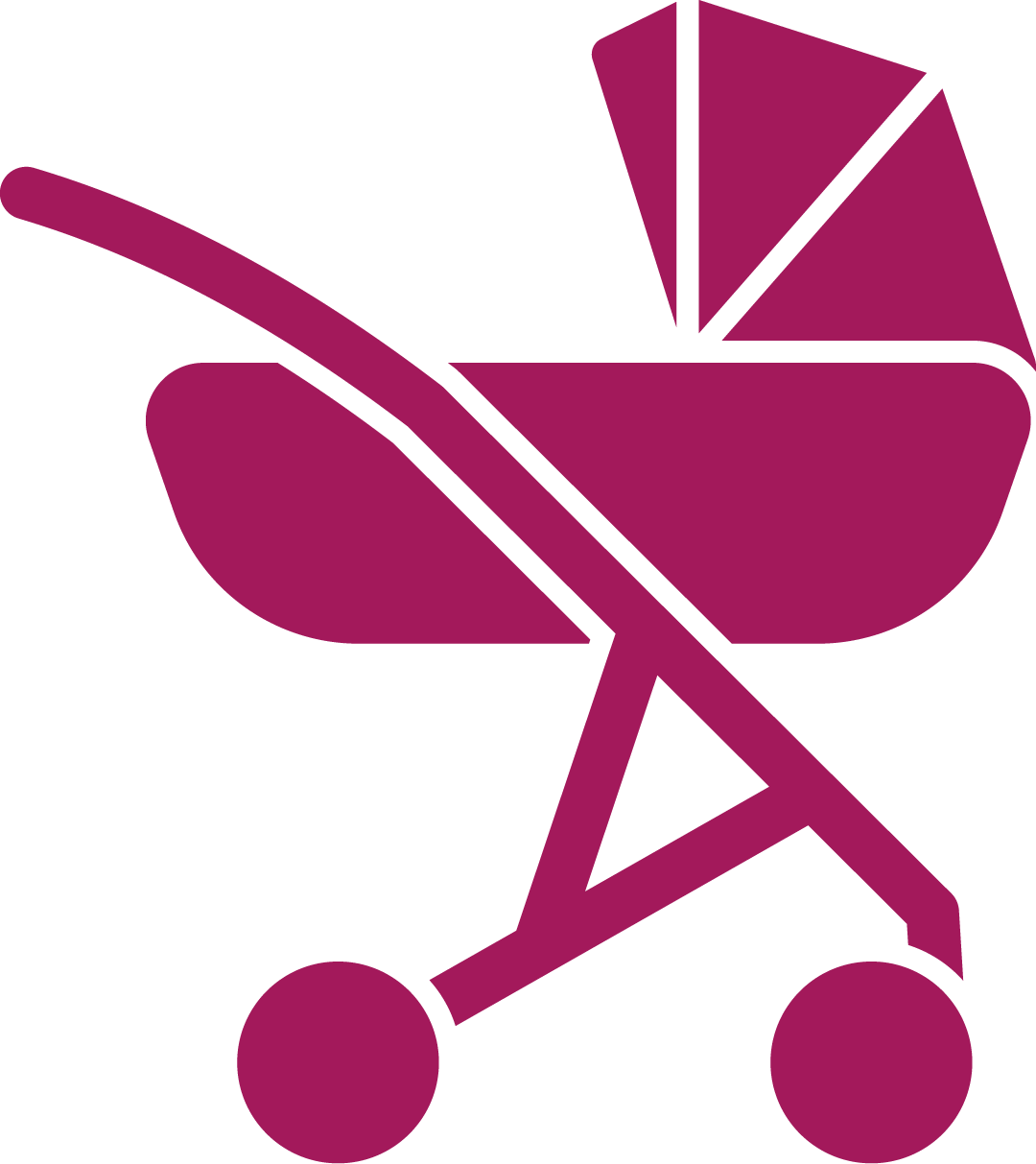 Pregnancy & First Days
Pregnancy & First Days
 Sleep
Sleep